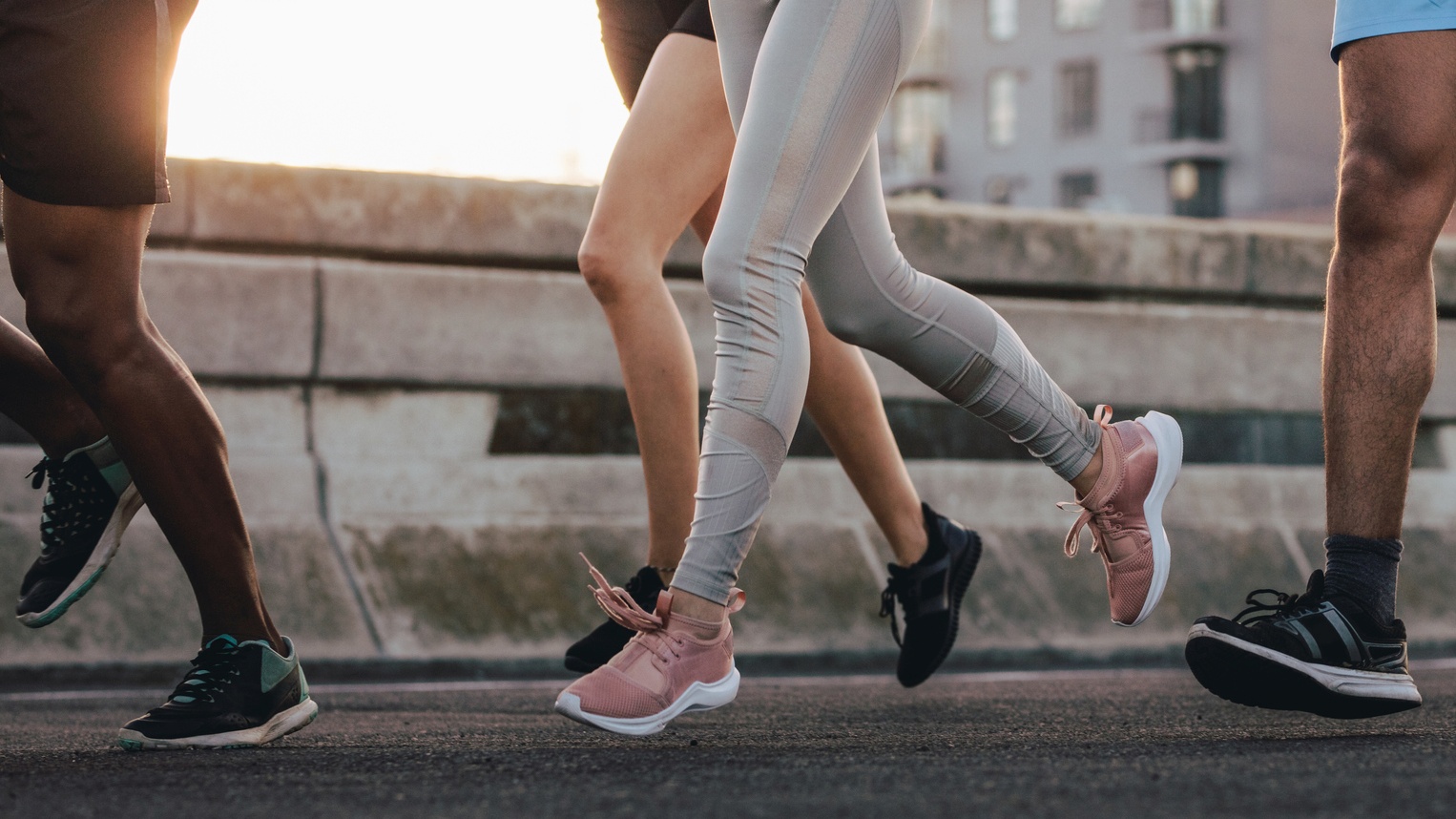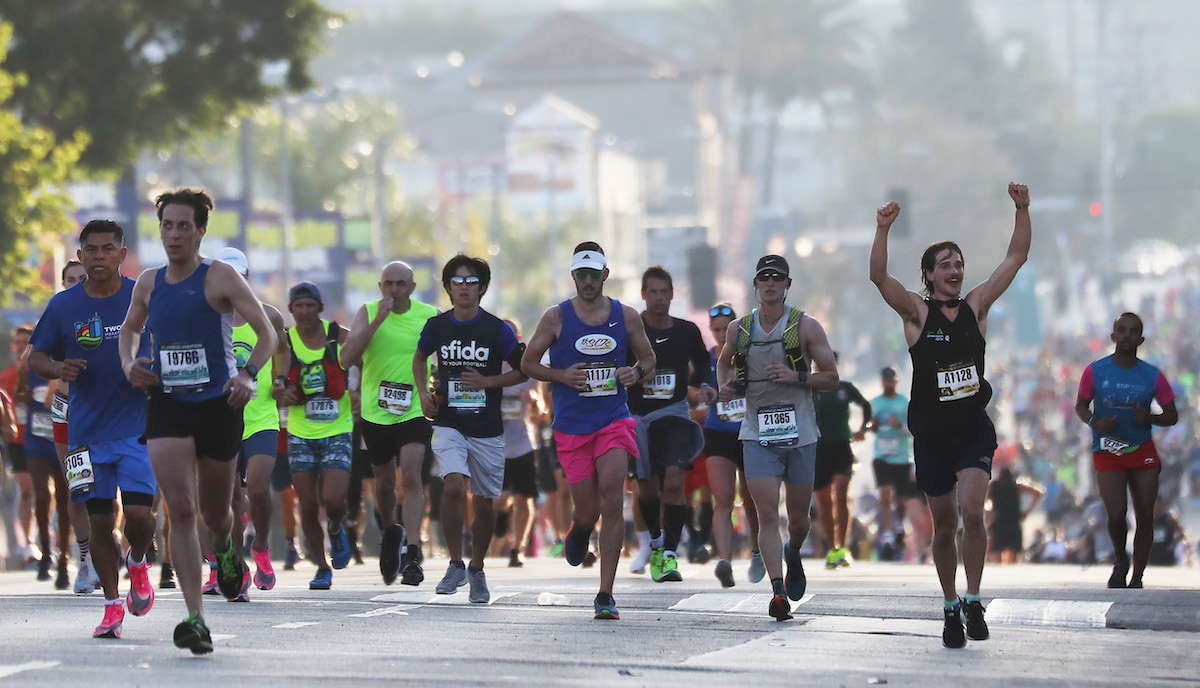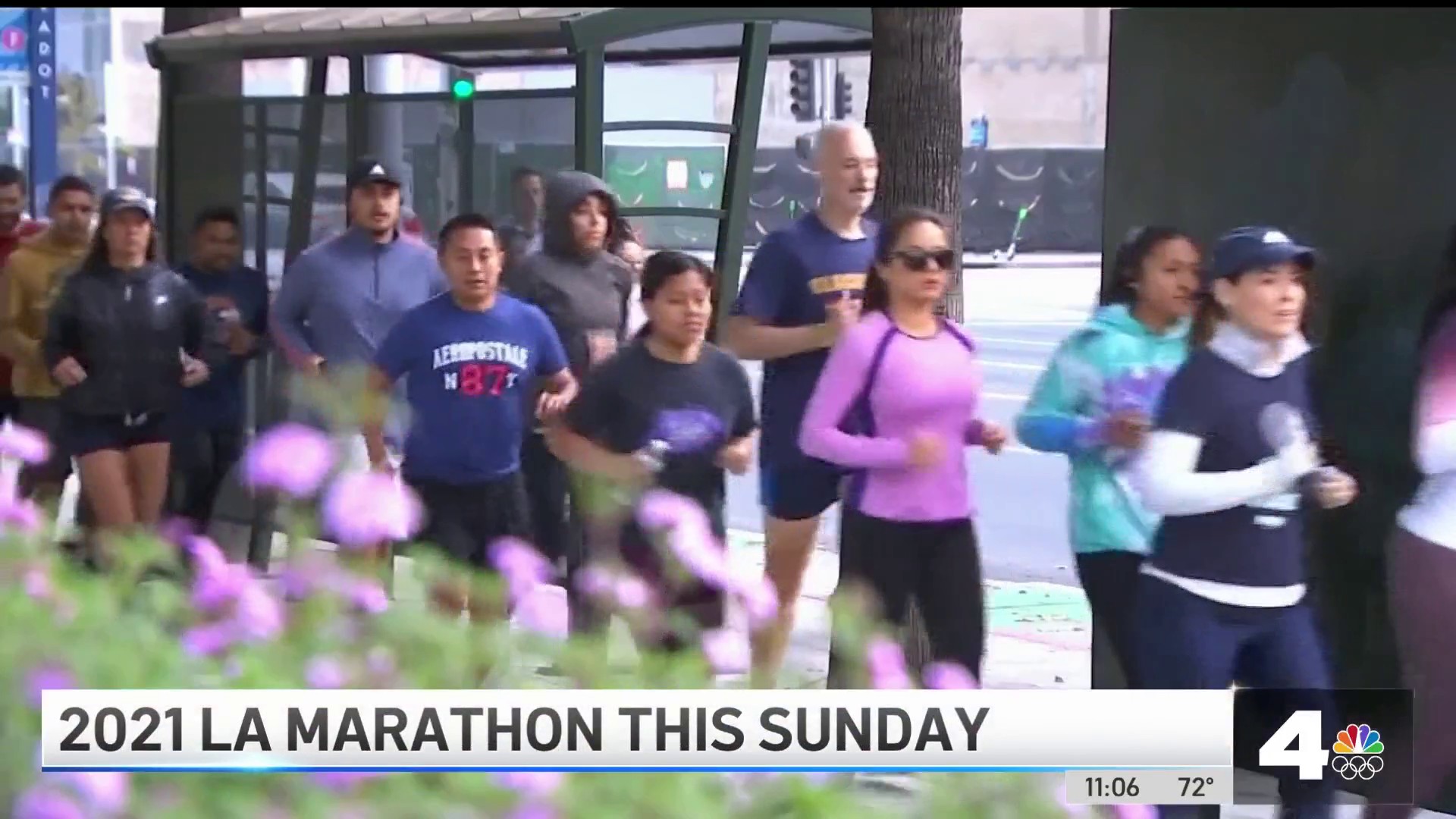Participants in the 36th Los Angeles Marathon were off to the races Sunday morning, with a celebratory atmosphere despite the smaller crowds and COVID-19 precautions.
The men's and women's winners each receive $6,000, the runners-up $2,500 each and third-place finishers $1,500 each.
John Korir of Kenya was the men's winner, with a time of two hours, 12 minutes and 47 seconds. His victory comes two years after being passed in the final 200 yards.
Natasha Cockram of Wales was the women's winner, with an unofficial time of two hours, 33 minutes and 16 seconds.
Get top local stories in Southern California delivered to you every morning. >Sign up for NBC LA's News Headlines newsletter.
But for many of the runners, the return of the LA Marathon was a victory marking another small yet significant step in the return to pre-pandemic life.
"It's super fun! I love it," runner Jeanette Hinojosa told NBC4.
The Los Angeles Marathon route started at Dodger Stadium this year, going south to downtown Los Angeles, west to Santa Monica and then back to Avenue of the Stars in Century City for the finish line.
The route, called the Stadium to the Stars course, also passed through Echo Park, Hollywood, West Hollywood and Brentwood.
The map below has detailed road closure information.
Proof of full vaccination against COVID-19 or a proof of a negative COVID-19 test was required prior to entry for all participants, staff, volunteers, media and spectators entering the secured start line area at Dodger Stadium.
Face coverings were required while inside the Dodger Stadium start line secured area, except when actively eating or drinking. Runners were allowed to remove their face coverings after crossing the start line.
Organizers recommended spectators along the course wear face coverings along with everyone attending the finish line festival.
Last year, the Los Angeles Marathon barely got in before the COVID-19 crisis escalated and the lockdown began.
After being postponed twice, this year's edition of the race finally came to the starting line eight months behind the usual spring start date, with the new vaccination or negative test requirements.
"I felt very safe being a part of this," said Alan J. Garcia, a marathoner from Fontana. After his recovery from COVID, along with the recovery of several of his family members, it was a triumph to be at the race.
"I'm just so happy to be a part of this," he said.
Gates opened at 3 a.m. Sunday morning, with competitors in wheelchairs starting at 6:30 a.m., Elite women starting at 6:45 a.m., and Elite men and the full field at 6:55 a.m.
The full schedule of events can be found here.
Organizers initially estimated that the field has more than 13,000 runners, from 50 nations and all 50 states, and 127 runners who have run all 35 previous editions of the race.
The Joint Information Center reported a more conservative 9,400 participants -- a smaller field than usual, but one that some runners said provided advantages.
"You know what, I like the smaller field," said Wayne Jackson, a member of the LA Leggers running and walking club.
"We're in LA," said Mike Chua, another runner. "We're always happy whenever we have a chance to be less crowded than usual."
"It feels good to do something that we used to do, kind of return to normalcy, but also balanced, try to stay safe," Chua said.
There were 70 graduates of the Students Run LA free marathon training program for at-risk middle school and high school students also participating in the marathon this year. City Councilman Joe Buscaino, a candidate for mayor of Los Angeles, ran with them.
Kenyan Edwin Kimutai was second place for the men with a time of two hours, 18 minutes and one second, while Amanuel Mesel of Eritrea was third with a time of two hours, 18 minutes and 17 seconds.
The men's race has been won by a Kenyan every year since 1999, except for 2011, 2014 and 2020 when it was won by Ethiopians. A U.S. runner last won the men's race in 1994.
Cockram is the third non-African woman to win in the past 12 races, joining runners from the former Soviet Union who won twice. A U.S. runner last won the women's race in 1994.
Kenyan Antonia Kwambai was second for the women with a time of two hours, 37 minutes and 35 seconds. Russian Nina Zarina was third with a time of two hours, 37 seconds and 36 seconds.
With the LA Marathon a big step toward resuming the communal events and celebrations that COVID interrupted for so long, and with spectators providing a boost to participants along the route -- singing the Hamilton soundtrack as they ran through Hollywood and past the Pantages Theatre -- everyone had a reason to celebrate.
"It's nice to see so many people out," said Kirsty Langsdale, cheering on her husband. "It's so emotional."
After 26 miles, with sore feet, runners arrived in Century City to bask in the satisfaction of a journey completed, and a first step taken.
"I feel the spirt of the American people can outdo COVID, we can overcome it," one runner said. "I feel we're... almost at the finish line."




